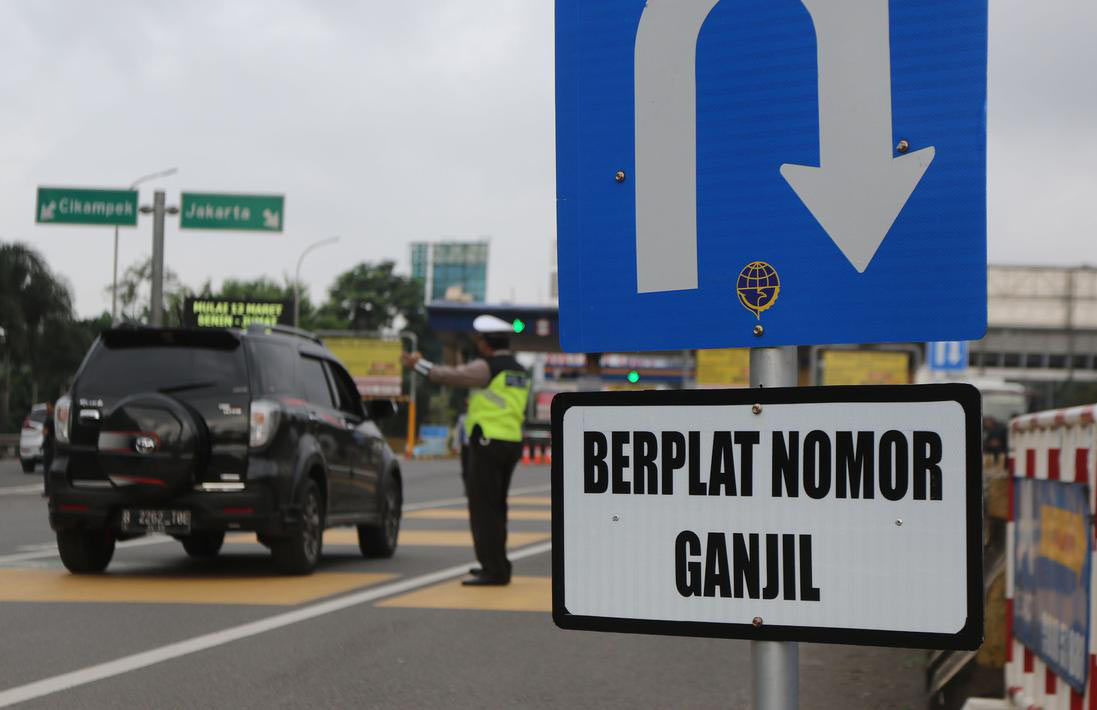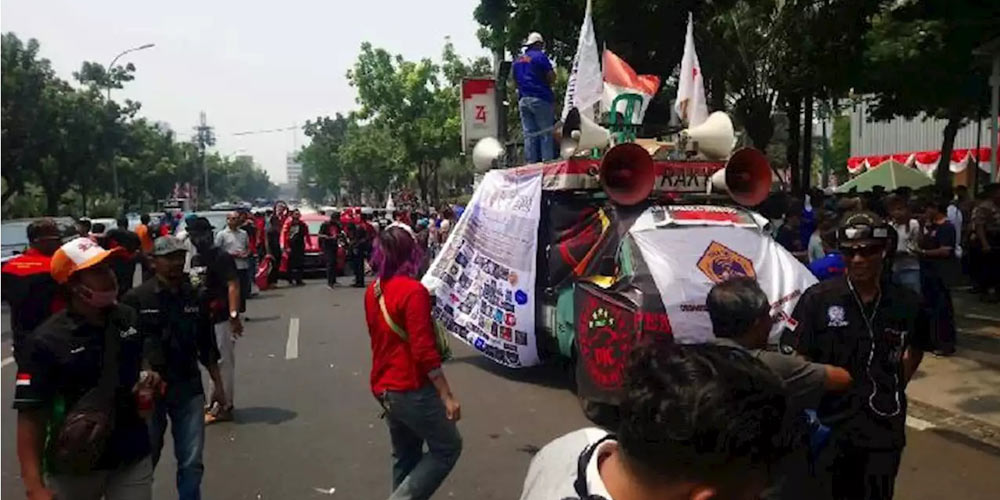
As an archipelago country in the Southeast Asia, Indonesia is a crowded home for more than 250 million people. And Jakarta, its capital city, is Indonesia's most crowded.
The city is famous for its congestion. Happening throughout the city, traffic is nothing new, and it's a growing problem. As one of the solutions, the city has what it calls the 'odd-even' traffic rule, which allows cars with odd number plates to pass through major thoroughfares on odd-numbered dates, and even-numbered cars on even dates.
With the city administrator enforcing the odd-even rule to more roads in the capital in order to reduce congestion and air pollution for its 11 million inhabitants, the rule also applies to ride-hailing services popular in the country: Gojek and Grab, with their car ride-hailing services.
This decision is giving the two companies a big blow in their biggest market in the country.
This odd-even number plate decision however, doesn't apply to 12 kinds of vehicles, including taxis, motorcycles, public transportation, electric vehicles, disabled motorists and emergency vehicles.

The Online Drivers Association (ADO), representing Gojek's and Grab's driver-partners, pointed out that the expansion of the rule will definitely affect their income.
Hundreds of drivers from the two ride-hailing services have staged a rally in front of City Hall, demanding the city administration exempt them from the vehicle restriction.
“We want the administration to exclude online taxis in the odd-even traffic scheme, as it would disrupt our operations,” one of the drivers said.
"I have an even license plate. If I am not exempted from the odd-even policy, I will not be able to get many passengers on odd days of the month; that will be very disadvantageous for me,” another driver said.
ADO suggested that stickers can be given to ride-hailing drivers to allow them operate in odd-even zones.
Gojek and Grab drivers have found support from Transportation Minister Budi Karya Sumadi, who suggested that app-based ride-hailing services be exempted from the policy, saying that: "All public transportation should be treated fairly in the policy. If conventional taxis are exempted from the scheme, then online taxis should be given the same treatment," as quoted by Kompas.
In the crowded city of Jakarta, when many people own and drive their own vehicles, ride-hailing can make commuting more bearable. But the city administration sees ride-hailing as part of the community that contribute to the city's increasing congestion and pollution.
Jakarta Governor Anies Baswedan's administration is already under public scrutiny due to the worsening traffic and air pollution. One of the provisions of the instruction is the expansion of the odd-even license plate traffic policy.
After studying Gojek's and Grab's appeal, the city council concluded that they have to follow higher regulations, and reject it.
Ride-hailing services in Jakarta are already regulated by a 2018 Ministerial Decree, so any attempt to get a special regulation passed for them will contravene the decree.
"The Supreme Court has also made a decision to forbid special markings on ride-hailing cars," said Syafrin Liputo, Jakarta's transportation department head, saying that "It's simply not possible for the regional government to implement policies that contradict higher laws. You can't force the government's hands."

Gojek and Grab themselves have been dealing with the odd-even rule by tweaking their algorithms to allow passengers to choose cars with odd or even number plates. But with the expanded zones and having their appeal denied, not only the drivers are worried, as the two companies are also worried.
"The expanded rule will cut our driver-partners' income," Grab Indonesia president director Ridzki Kramadibrata told reporters after a meeting with the Coordinating Ministry for Economic Affairs on Tuesday.
"People now think of online taxi as part of the public transportation system. It helps their economic activities. It also reduces the number of private vehicles on the road since each online taxi can make 10 to 20 trips a day," he continued.
While some Jakarta residents are inconvenienced by the policy, the head of environmental pollution management at the Jakarta Environment Agency, Agung Pujo Winarko, said that there is a significant decrease in pollution on the affected roads since the trial run of the extended odd-even policy on August 12th.
"There was a 12.9% drop in pollution around the Hotel Indonesia traffic circle in Central Jakarta, while Kelapa Gading in North Jakarta saw a 13.51% decrease from the previous week," he said on Monday.
Ahmad Safrudin, executive director of the Committee for the Phasing Out of Leaded Fuel (KPBB), said the impact would be even greater if the city administration could include motorcycles in the policy, citing research which revealed that motorcycles were the number one air polluter in Jakarta.
"Motorcycles emit two times the carbon monoxide of cars and eight times the hydrocarbon. In total, they emit 8,533 tons of pollution every day, accounting for 44.5% of the pollution in the capital city," he said.
There are around 24.89 million motorcycles registered in Greater Jakarta, according to data from the Greater Jakarta Transportation Agency (BPTJ). That figure is making up 75% of all road vehicles, with private cars at 23% and public transportation at 2%.
Jakarta Transportation Agency head Syafrin Liputo said the administration had no plans to include motorcycles in the odd-even policy, at least yet.
“We don’t have the resources at the moment to impose the policy on motorcyclists. Surveillance would be very difficult for traffic police, as the number of motorcycles in the capital city is massive,” he said.